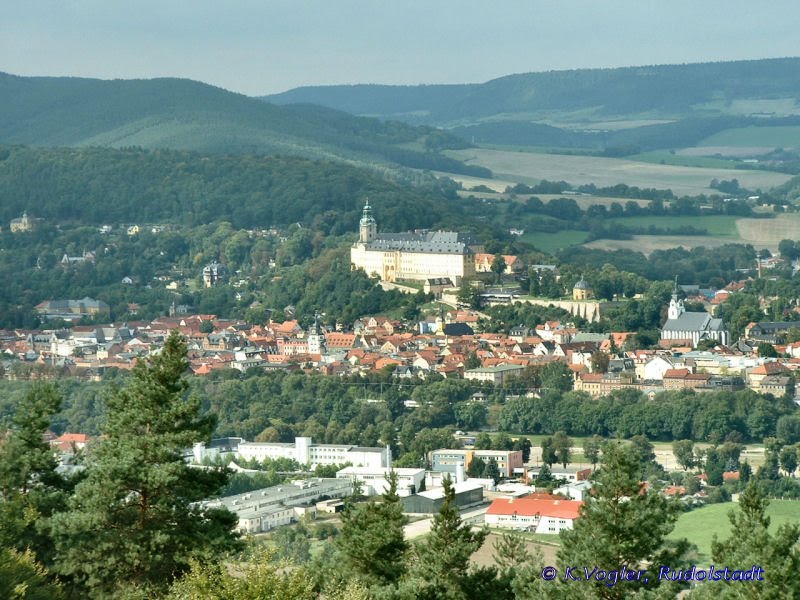As residence town of the former principality of Schwarzburg-Rudolstadt, the town was part of the cultural triangle of Weimar, Rudolstadt and Jena, and experienced a time of prosperity in the 18th and 19th century. Rudolstadt and its surroundings are associated with the work of famous poets and scholars, like Friedrich Schiller, Johann Wolfgang Goethe, Johann Gottlieb Fichte, Wilhelm und Alexander Humbold, the musicians and composers Richard Wagner, Franz Liszt and Niccolo Paganini as well as the founder of the first kindergarten, Friedrich Frobel.
Apart from the foundation of a porcelain manufactory in 1762, industrialisation arrived late in Rudolstadt, which long remained a place of townsmen who owned a smallholding. In 1874, a railway station was built and the entrepreneur Friedrich Adolf Richter made Rudolstadt known all over the world by his medicine and famous Anchor building blocks.
After abdication of the last prince of Schwarzburg-Rudolstadt in 1918, the town became a council town in 1922.
